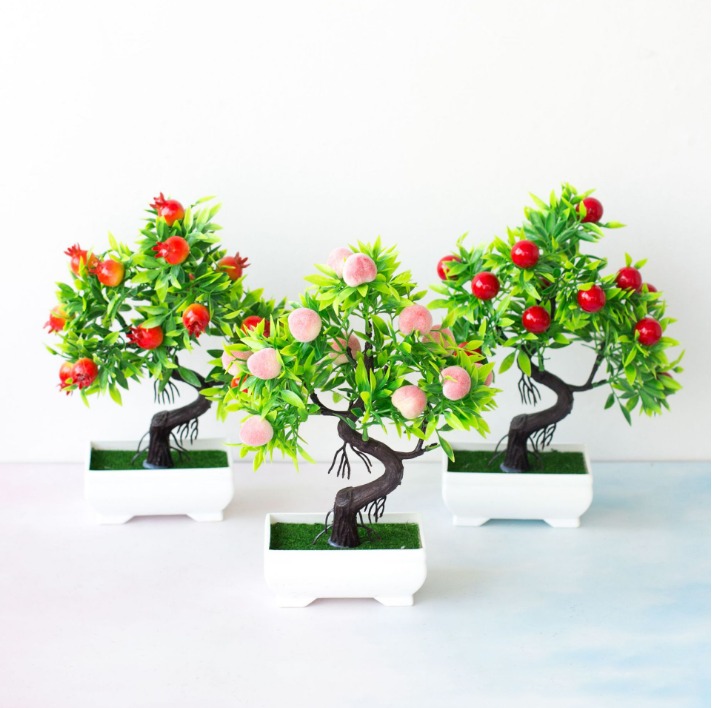Are Artificial Plants Bad for Feng Shui?
– Natural greenery of all kinds is conducive to enhancing energy and purifying the air in workspaces or living areas. They also symbolize growth and new beginnings, but artificial plants and flowers do not support this.
– Natural flora promotes nourishing energy, whereas artificial greenery symbolizes stagnant energy. It may serve as a beautiful and elegant home decor piece, but it does not foster good qi.

Opinions vary on whether to place artificial plants indoors. Illustrative image.
– Some believe that placing artificial plants in the bedroom invites unwanted romantic entanglements. It can also cause disharmony for couples and even lead to third-party interference.
– If you position these faux plants in the living room, they will attract people with hidden motives.
– Aside from Feng Shui, it is also detrimental to our environment. The production and processing of these artificial plants pollute the air, and the synthetic materials are not easily recyclable.
However, a dissenting voice supports and encourages the use of artificial plants in our homes or offices. They argue that it is an easy way to bring nature indoors and make your home appear as though you have a green thumb.

Why Artificial Plants Can Be Good for Feng Shui
In certain cases where natural light is lacking, artificial plants may be preferable to real ones. It is always better to have a healthy-looking artificial plant than a dying or withering real one.
You can also use artificial plants to improve the Feng Shui of a space, such as softening sharp wall corners to reduce Sha Chi (killing energy).
However, if you choose to use these synthetic plants, remember to keep them clean as they attract dust quickly. Additionally, opt for higher-quality plants that resemble their natural counterparts closely.
In conclusion, it is essential to know that there are no “universal, set-in-stone Feng Shui rules.” Every home and space is unique, so it ultimately depends on individual preferences and circumstances.

































